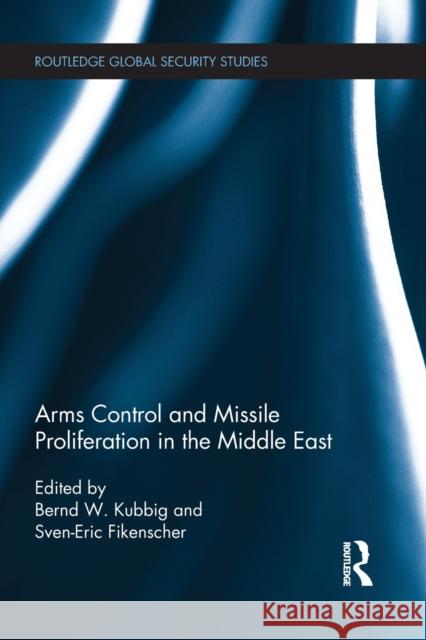Arms Control and Missile Proliferation in the Middle East » książka
Arms Control and Missile Proliferation in the Middle East
ISBN-13: 9780415516396 / Angielski / Miękka / 2013 / 360 str.
Arms Control and Missile Proliferation in the Middle East
ISBN-13: 9780415516396 / Angielski / Miękka / 2013 / 360 str.
(netto: 229,91 VAT: 5%)
Najniższa cena z 30 dni: 216,55
ok. 16-18 dni roboczych.
Darmowa dostawa!
This edited volume provides a comprehensive, systematic and innovative analysis of the missile threat/proliferation issue in the Middle East. The volume starts from the recognition of the pronounced security dilemma in the region. It is above all defined by the multi-faceted and in part overlapping conflict formations and by the constant arms build ups. Emphasizing the entire spectrum of missiles, including 'kitchen-made unguided rockets launched by sub-state actors such as Hamas and Hezbollah, as well as the sophisticated guided (ballistic and cruise) missiles of major states, the book argues that the missile threat/proliferation problem can be reduced and eventually overcome only by a Cooperative Security Concept. Major elements within this framework are variants of arms control (Confidence- and Security-building Measures CSBMs], reductions and the long-term vision of a Missile Free Zone MFZ]). For such a strategy to be effective it will have to be implemented step by step. The Cooperative Security Concept will be politically acceptable to the key actors in the region only if it is perceived by them as a means which increases their security. In addition, vital interests of major extra-regional players will have to be taken into account. This assumption led to the following research question of this book: under which circumstances are gradual missile-related arms control steps feasible and politically acceptable? This book will be of much interest to students of arms control, Middle Eastern politics, Gulf Security, war and conflict studies, security studies and IR.











